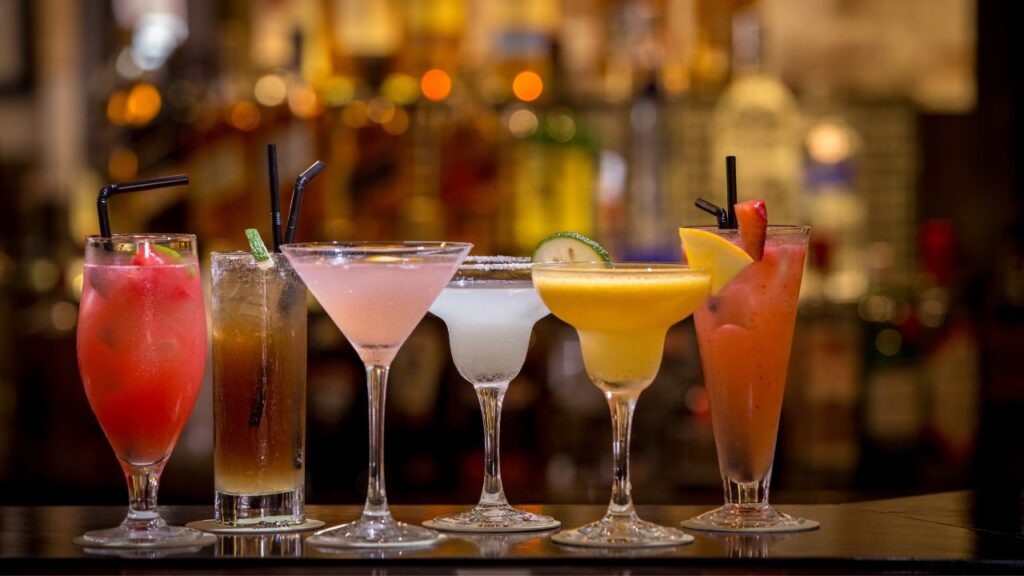While the prospect of launching a new restaurant, cafe, or hawker stall is exciting, you must first navigate the regulatory framework in Singapore. Operating any form of food & beverage outlet in Singapore requires approval from a network of government agencies, with the Singapore Food Agency (SFA) serving as the primary statutory board.
The SFA is the central authority on food business operations, food safety standards, and licensing procedures. Beyond the SFA, other key government bodies have specific purviews:
- Singapore Police Force (SPF) is responsible for issuing liquor licences.
- Urban Redevelopment Authority (URA) and the Housing & Development Board (HDB) manage land-use permissions, zoning compliance, and tenancy approvals.
- The Accounting and Corporate Regulatory Authority (ACRA) oversees business registration, which is a basic requirement before any licence application.
- Singapore Civil Defence Force (SCDF) ensures fire safety compliance and issues fire certificates.
- Ministry of Manpower (MOM) regulates employment matters, including work passes for foreign staff.
| Permit / Requirement | Authority | Purpose | Approximate Fee |
| Food Shop Licence | SFA | Required for all independent restaurants, cafes, and food outlets | $195/year |
| Food Stall Licence | SFA | Required for stalls within a larger licensed premise (e.g., hawker centre) | $32/year |
| Liquor Licence | SPF | Required for establishments serving alcoholic beverages | $110 to $880 / year |
| Outdoor Refreshment Area Permit | URA / HDB | Required for alfresco seating areas | Varies by location/size |
| Basic Food Hygiene Certificate | SFA-approved providers | Mandatory for all food handlers | Varies |
| Halal Certification | Majlis Ugama Islam Singapura (Muis) | Voluntary, for establishments serving Halal food | Varies by scheme |
1) Core Licence: Food Shop Licence vs. Food Stall Licence
Every F&B operation in Singapore, whether a full-service restaurant or a hawker stall, must begin with a foundational permit from the SFA. The two core permits are the Food Shop Licence and the Food Stall Licence.
Food Shop Licence
A Food Shop Licence is the permit for a self-contained, independent F&B outlet. This includes standalone restaurants, cafes, caterers, food kiosks, and even supermarkets that sell raw meat or seafood.
This licence signifies that the entire premises operates as a single, independent unit, with the owner or operator holding full responsibility for all aspects of food safety, hygiene, and compliance.
Food Stall Licence
In contrast, a Food Stall Licence is for a business that operates within a larger, already-licensed establishment, such as a food court, hawker centre, coffeeshop, or private market.
This difference leads to a significantly streamlined application process. Because the main operator of the larger premises has already secured the necessary overarching approvals for infrastructure and sanitation, the individual food stall operator’s application can be processed much more quickly.
Individual stall owners and rely on the main operator for overall compliance with standards like pest control and waste management.
2) Applying For A Food Shop Licence
The application for a Food Shop Licence is a structured process that is centralised on the GoBusiness portal and follows a clear sequence of steps.
Step 1: Obtain In-Principle Approval (IPA)
Before any renovation work commences, an applicant must submit a comprehensive application via the GoBusiness portal to secure an In-Principle Approval. This is the critical first step, and the SFA aims to notify successful applicants within seven working days of a complete application.
An incomplete application, for instance, with a layout plan that has missing elements, will require rectification, which can prolong the process.
Step 2: Commence Renovation & Set-up
Once the IPA is granted, the applicant has the green light to proceed with the renovation and set up the premises. It is mandatory to follow the layout plan submitted and approved in the first step.
Step 3: Request for Inspection
After the renovation and set-up are complete, the premises might be required to undergo a pre-licensing inspection. This can be conducted either virtually via a Zoom call or through a photo submission, as specified in the IPA.
During a physical or virtual inspection, an SFA officer will verify that the premises conform to the approved layout plan, checking for the correct installation of equipment like exhaust systems, floor traps for wastewater, and proper washing facilities.
Step 4: Complete Payment for Licence
Upon successful compliance with all requirements and the pre-licensing inspection, the applicant will receive a payment notification via email or through the GoBusiness portal. Payment must be made within 28 days to prevent the application from lapsing.
The following table provides a checklist of the documents required throughout this process
| Document Name | Description |
| ACRA Business Profile | The document, no more than three months old, proves that the business is registered with ACRA. |
| Tenancy Agreement & IRAS Stamp Duty Certificate | The legal lease or tenancy agreement for the premises, along with the stamp duty certificate from IRAS. |
| URA/HDB Change of Use Approval | Approval from the relevant authority confirming that the premises are designated for commercial use as a food retail establishment. |
| Layout Plan | A scaled floor plan detailing the kitchen, seating, storage, and waste areas. It must show the location of key equipment like sinks, exhausts, and washing basins. |
| Pest Control Contract | A contract with a pest control company, demonstrating a commitment to hygiene and pest management. |
| Cleaning Programme/Schedule | A detailed plan outlining the cleaning procedures for the premises. |
| Food Safety Course (FSC) Level 1 Certificates | Proof that all food handlers have completed the mandatory food hygiene training course. |
3) Applying for a Food Stall Licence
The process for a Food Stall Licence is more streamlined, as it operates within an established, licensed premise.
The key requirement for a Food Stall Licence is securing a tenancy or lease agreement with the main operator of the premises. For new hawker stalls in NEA-managed food centres, this often involves bidding for a stall in a tender process.
Once the tenancy agreement is secured, the application is submitted through the GoBusiness portal.
The primary documents required are:
- Tenancy agreement with its Certificate of Stamp Duty from IRAS
- A layout plan that reflects the specific stall’s location within the larger establishment.
If all documents are in order, the SFA aims to approve the application within seven working days, after which the operator can make the licence payment and commence operations. The licence fee is significantly lower, at S$32 for one year, reflecting the lower-barrier entry point for this business model.

4) Applying For Liquor Licence
For establishments that intend to sell or serve alcoholic beverages, a liquor licence issued by the Singapore Police Force (SPF) is mandatory.
The type of licence required depends on the business model, the variety of alcohol sold, and the desired trading hours. The SPF also conducts a “fit and proper” test, reviewing the applicant’s background and compliance history before granting a licence.
The processing time for a liquor licence application is typically around 12 working days from the receipt of all required documents.
The following table summarises the main categories of liquor licences:
| Class | Description | Trading Hours | Annual Fee |
| 1A | Supplies liquor for on-premises consumption (e.g., restaurants, bars) | 6 a.m. to 11:59 p.m. | $880 |
| 1B | Supplies liquor for on-premises consumption | 6 a.m. to 10 p.m. | $660 |
| 2A | Supplies beer only for on-premises consumption | 6 a.m. to 11:59 p.m. | $460 |
| 2B | Supplies beer only for on-premises consumption (e.g., hawker stalls) | Trading hours as indicated on licence | $285 |
| 3A | Supplies liquor by retail for off-premises consumption | 7 a.m. to 10:30 p.m. | $110 |
| 3B | Supplies beer only by retail for off-premises consumption | 7 a.m. to 10:30 p.m. | $110 |
| 4 | Supplies liquor by wholesale for off-premises consumption | 7 a.m. to 10:30 p.m. | $110 |
| 5 | Temporary licence for short-term events | Up to 30 consecutive days | Varies |
5) Applying For Outdoor Refreshment Area (ORA)
An F&B business seeking to offer an alfresco or outdoor dining area, known as an Outdoor Refreshment Area (ORA), must secure specific permission. This is often handled by the URA for most commercial areas and by the HDB for properties they manage.
The guidelines for ORAs are strict to ensure they do not obstruct pedestrian movement, fire engine access routes, or landscaped areas. An important policy is that the ORA should not be the primary seating area for the F&B unit.
6) Applying For Halal Certification
For F&B establishments seeking to cater to the Muslim community, Halal certification is a strategic business decision. This certification is issued by the Majlis Ugama Islam Singapura (Muis), the sole legal authority for Halal certification in Singapore.
The certification process is entirely voluntary but provides a significant commercial advantage, as the Muis Halal mark is widely recognised in key markets like Brunei, Indonesia, and Malaysia.
To obtain this certification, a business must comply with the Singapore Muis Halal Quality Management System (HalMQ), which governs everything from sourced ingredients to preparation methods and kitchen layout.
Requirements also include employing at least two Muslim staff and having a Halal Assurance Officer.
7) Licence For Home-Based F&B Businesses?
Singapore also provides a framework for small-scale, home-based food businesses, which operate under a separate scheme. The most crucial detail for these businesses is that they do not require an SFA food retail licence.
However, the absence of a licence does not mean the absence of regulations. Home-based businesses must still comply with prevailing food laws and regulations, and enforcement actions can be taken for any food safety breaches.
8) Continued Compliance
The regulatory framework for F&B businesses in Singapore is designed for continuous compliance and maintenance.
- A mandatory requirement for all food retail businesses is that every staff member involved in food preparation, handling, or serving must possess a valid Food Safety Course (FSC) Level 1 certificate.
This training covers essential practices such as personal hygiene, proper food storage, and contamination prevention. The certificate is valid for five years, after which a refresher course is required to ensure that food handlers’ knowledge remains current. - Furthermore, every F&B business must first be registered with ACRA. This business registration is a prerequisite for all licence applications.
- The one-year validity of most licences, including the Food Shop, Food Stall, and Liquor Licences, means that operators must remain vigilant.
Operators are encouraged to sign up for GIRO, which facilitates automatic payment for licence renewals and ensures there are no disruptions to business operations.
9) Conclusion
Navigating the regulatory landscape of Singapore’s F&B industry can seem daunting, but it is a structured and manageable process. The key is to approach it with a clear, step-by-step plan.






